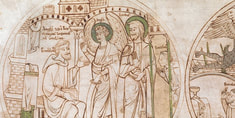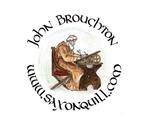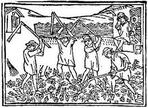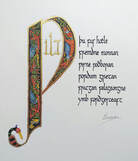|
I have been fortunate enough to receive some excellent reviews from American readers, so this is not a petulant response by any means. However, one kind American lady magnanimously wrote that she loved the story, but shame the novel was littered with typos. Hang on a minute, dear lady, how is that possible? After a career teaching English, double-checking, triple-checking, my Beta readers and, finally the demanding editorial proofs can even one typo have escaped us? But ‘littered’. Now I wouldn’t bother writing this blog if it was a question of just one eccentric’s opinion, but several Americans have complained in their reviews about typos. Then, it came to me in a flash: British and American English! Is it my fault if a reader reads colour when she is convinced it should be color? Or sympathise when she knows it is sympathize? Well, it’s hardly surprising that a British author writes in British English. His Vance & Shepherd Metropolitan murders are set in London – the capital of little Old England. Then, there are his Anglo-Saxon novels. Good job I can’t write those in Old Englisc (sic!) or only a few experts would understand them, but surely an American would admit that it would be incongruous to write a novel set in the eighth century AD in American English. Now, I must indulge myself with a little language history. Old English gave way to Middle English (the language of Geoffrey Chaucer) who died in 1400. Then we had William Caxton, (born 1422) whose printing press did much to make English uniform throughout England. His painstaking typographical settings contained all his foibles, so modern-day English spelling has much to do with Caxton’s preferences, which is perhaps that he thought night should be spelt (not spelled) so and not nite. I was born in Lincolnshire about ten miles from the port of Immingham from where (or whence) the Pilgrim Fathers left in the Mayflower before calling in farther down the coast in the port of Boston (Lincs, not Massachusetts). Of course, they were mainly Puritans and took with them plenty of copies of the King James Authorized (sic) Bible with its beautiful English, despite the frequent thee, thy, and thou it is the most diffused book in the world. And we should not forget (forgot, forgotten) that Americans use get, (got gotten), so they use a purer seventeenth-century usage than British get, got, got. It used to bother me that Americans called a tap a faucet until I discovered that in seventeenth-century Britain the faucet was the name given to a cask or barrel tap – open it and out flows ale – now that’s charming! Few Americanisms set my teeth on edge, but one of them, understandably is john. Why call a toilet john when it can be a loo? I speak for all the Johns in this world! Even worse is an expression in current vogue, ‘from the get-go’—I hate it—what’s wrong with ‘from the start or ‘from the beginning’? Thanks for bearing with me. As a reward especially to any patient Americans, I’ll say right here that there are Americans among my favourite writers – favorite writers – such as Ernest Hemingway, Gore Vidal and poets Frost and Dickinson. Also, I promise not to criticize my American writer friends in a review about their typos (non-typos!)  Get a free eBook!Join my newsletter & receive a free digital copy of Heaven in a Wildflower, book 1 of my St. Cuthbert Trilogy, as well as monthly news, insights, historical facts, & exclusive content delivered straight to your inbox! Thank you!You have successfully joined my mailing list!
1 Comment
1/4/2024 06:26:59 pm
I read John Broughton's book, Heaven in a Wildflower. It was an excellent read - captivating.
Reply
Leave a Reply. |
To buy your copy of Rhodri's Furies click the link below:
https://www.amazon.co.uk/Rhodris-Furies-Ninth-century-Resistance-incursions-ebook/dp/B0BPX9C2D3/ |




